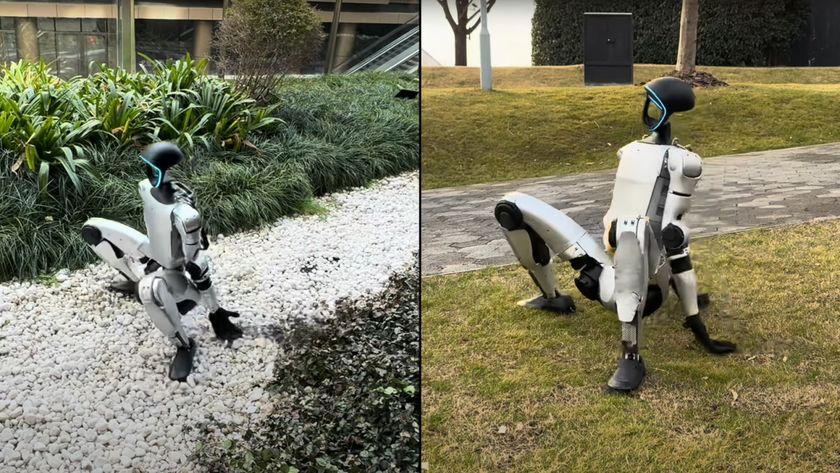Google-Owned Company Rejects Military Funds for Robotics Contest

Thank you, but no thank you. A Google-owned company has chosen to forgo military funding for the next round of a robotics competition hosted by the Defense Advanced Research Projects Agency (DARPA), the branch of the U.S. Department of Defense responsible for developing new technologies for the military.
Japanese robotics firm SCHAFT Inc., which was acquired by Google last year, will enter the self-funded track in the competition. The company scored the most points at the DARPA Robotics Challenge Trials in December. The two-day competition, held at the Homestead Miami Speedway in Florida, tested the mobility, dexterity and perception of robotic creations from 16 teams.
The robots were evaluated based on their performance in eight physical tasks. These included driving a vehicle through a designated course; walking across uneven terrain and piles of rubble; removing debris from a doorway; climbing an industrial ladder; retrieving and connecting a hose; opening three different types of doors; using tools to cut through drywall; and closing a series of valves to demonstrate dexterity. [See Images of the DARPA Robotics Challenge]
The contest is designed to evaluate the current state of robotics, and to spur the development of new robots that could one day carry out disaster-response tasks in the aftermath of natural or man-made catastrophes.
Team SCHAFT's two-legged robot, named S-One, dominated the competition, with Florida-based IHMC Robotics coming in second, and Team Tartan Rescue from Carnegie Mellon University placing third.
Initially, only the eight highest-scoring teams were eligible to receive funding from DARPA to compete in the final phase of the competition, which is scheduled to occur sometime between December 2014 and June 2015, according to agency officials.
With Team SCHAFT electing to proceed as a self-funded participant, DARPA is now inviting three additional teams, which all scored the same number of points in the Trials, to take part in the final round of the competition.
Sign up for the Live Science daily newsletter now
Get the world’s most fascinating discoveries delivered straight to your inbox.
"The decision by Team SCHAFT to self-fund allows DARPA to expand the competition and further develop disaster response robots," Gill Pratt, program manager of the DARPA Robotics Challenge, said in a statement. "This expansion is similar to what happened after DARPA held the Virtual Robotics Challenge in June 2013, when some teams shifted resources and allowed us to increase participation. I look forward to seeing the results of efforts by our new finalists and new team."
Humanoid robots from Team THOR, Team ViGIR and Team KAIST will now be eligible to compete in the DARPA Robotics Finals, agency officials said. There, the robots will vie for a $2 million grand prize.
DARPA is expected to announce details about the location and date of the Robotics Finals in the coming months.
Meanwhile, Google has been investing heavily in robotics. Last year, the company also acquired Boston Dynamics, an engineering and robotics design company best known for their military-funded Big Dog and WildCat robots.
Follow Denise Chow on Twitter @denisechow. Follow Live Science @livescience, Facebook & Google+. Original article on Live Science.

Denise Chow was the assistant managing editor at Live Science before moving to NBC News as a science reporter, where she focuses on general science and climate change. Before joining the Live Science team in 2013, she spent two years as a staff writer for Space.com, writing about rocket launches and covering NASA's final three space shuttle missions. A Canadian transplant, Denise has a bachelor's degree from the University of Toronto, and a master's degree in journalism from New York University.










